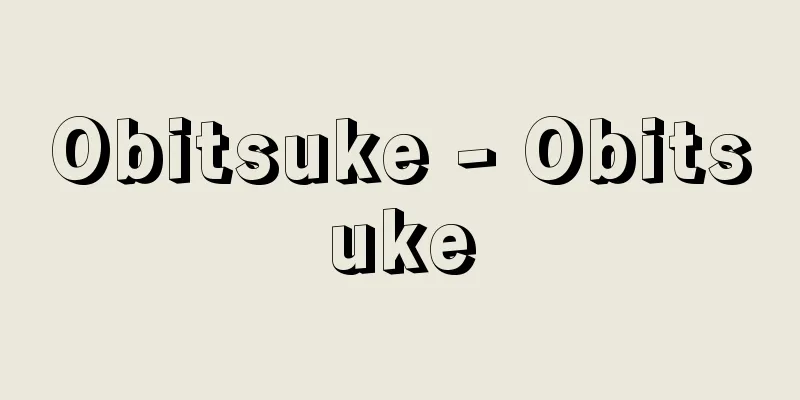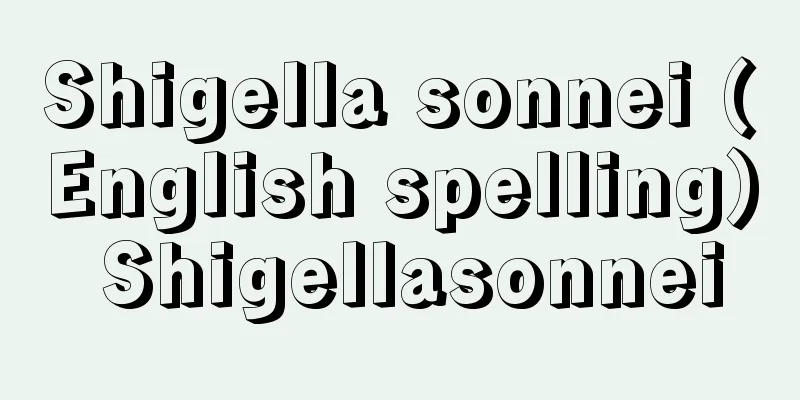Let go - Let go

〘noun〙① (━suru) To throw away. To throw down. To set down. Houge. *Toraakihon Kyogen, Hakuyo (late Muromachi period - early early modern period) "I took off my hakama and threw it away, not wanting to wear it, so I threw it away into the valley." [Chen Fuliang - Kasuga Warin Soyei Rhyme Poem]② (━suru) To throw away. To throw something away and not look back. Abandon. To leave it alone. Houge. *Haiku, Bashoan Kobunko ( 1696) Spring "I still let it go and leave my home."③ One of the performing arts performed in the Middle Ages and early modern period. Arts such as singing, dancing, magic, and acrobatics performed while beating a kokiriko. Also, people who specialize in these. Most were in monk guise, but some performed wearing eboshi hats over their hoods and with bamboo on their backs. Hougeshi. Houge monk. A free house. A free song. A free song. *Hōge. *Kuruma-yahon-yokyoku, Hōga-zō (around 1464) "These days, people are not so fond of playing around, but if you are a free-spirited person, then you are not free." ④ In Noh, a male entertainer who is dressed up to be suitable for scenes of madness, singing, and dancing. *Sandō ( 1423) "Hōka, this is the wind of the military, the wind of a breaking and moving attitude." ⑤ One of the folk performing arts. A large fan is carried on the back, and the performers move vigorously while playing flutes, drums, and gongs. It is distributed in Aichi Prefecture as a type of Nembutsu dance. [Etymology] The pronunciation of the character "hōge" can be either "houge" or "houka." "Houge" is mainly used as a Zen word meaning to cut ties with the secular world and enter a state of selflessness, while "houka" is often used to express the general meaning of throwing something away. However, the "Nippo Jisho" (Japanese-Portuguese Dictionary) from the end of the Muromachi period also includes the example "Fitouo (hito wo) fǒguesuru (hougesuru) ," which means to throw someone down and push them away from one's body, suggesting a fluctuating connection between the sounds of the characters "houge" and "houka" and their meanings.Ho-ge hau… [let go]Source: The Selected Edition of the Japanese Language Dictionary About the Selected Edition of the Japanese Language Dictionary Information |
〘名〙① (━する) 投げすてること。投げおろすこと。下におろすこと。ほうげ。※虎明本狂言・伯養(室町末‐近世初)「はかけのあしだぬぎすててはくやうなくて谷へほうかす」 〔陳傅良‐春日和林宗易韻詩〕② (━する) 捨て去ること。捨ててかえりみないこと。放棄。放置。ほうげ。※俳諧・芭蕉庵小文庫(1696)春「なほ放下して栖を去」③ 中世・近世に行なわれた芸能の一つ。小切子(こきりこ)を打ちながら行なう歌舞・手品・曲芸などの芸。また、それを専門に行なう者。多くは僧形であったが、中には頭巾の上に烏帽子をかぶり、笹を背負った姿などで演ずるものもあった。放下師。放下僧。放家。放歌。ほうげ。※車屋本謡曲・放下僧(1464頃)「今程人のもて遊び候は、放下ならではなく候程に」④ 能楽で、遊狂の場面や歌舞などにふさわしく仕立てられた男の遊芸人。※三道(1423)「はうか、是は、軍体の末風、砕動の態の風也」⑤ 民俗芸能の一つ。大きな団扇(うちわ)を背負い、笛・太鼓・鉦などを鳴らしながら激しく動くもの。念仏踊の一種として愛知県に分布。[語誌]「放下」の字音としては、「ホウゲ」「ホウカ」の両者が考えられるが、「ホウゲ」に関しては、世俗との縁を切って無我の境に入る意味を示す禅語としての用法が中心で、一方「ホウカ」に関しては、ほうり捨てるという一般的な意味を表わす場合に用いられることが多かったと思われる。もっとも、室町末の「日葡辞書」には、人を投げ倒して、自分の体から突き放すという意味で、「Fitouo(ヒトヲ) fǒguesuru(ホウゲスル)」という例もみえ、「ホウゲ」と「ホウカ」の字音と意味との結び付きの揺れもうかがわれる。
ほう‐げ ハウ‥【放下】出典 精選版 日本国語大辞典精選版 日本国語大辞典について 情報 |
>>: Legal tender - legal tender
Recommend
Tosakanori - Tosakanori
A perennial seaweed of the red algae family, the ...
Parliamentary Police - Giin Keisatsu
... Non-repeated matters: Once the will of the Di...
Tokyo Women's Medical University
It is a private institution. It was founded in 19...
Geochelone
...About 41 species are distributed in southern E...
Jinson
Born: August 7, 1430, Kyoto [Died] May 2, 1508. A ...
Carissimi, G.
... Catholics, who suffered a great deal from the...
Precipitation - chinden (English spelling)
This is the phenomenon in which solid particles i...
fabula palliata (English spelling)
… [comedy] Like tragedy, comedy also began as an ...
Eight heads - Yatsugashira
〘Noun〙① A cultivated variety of taro. Seven to nin...
Cultural spheres and cultural layers in Oceania
…Born in Berlin, he initially studied European me...
Permanent Zamindari System - Eitai Zamindari Seido
…A land ownership and taxation system introduced ...
Bone marrow - Kotsui
The soft part in the center of a bone, separated ...
Ikuta system - Ikuta system
This is the basic state system seen in Islamic dy...
ES Complex
…The catalytic reaction of an enzyme proceeds thr...
Daiso (English spelling)
This was the nickname of Onoya Sohachi, a represen...









